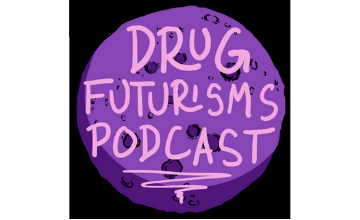“Who believes today that the war on drug trafficking is achieving victories? Quite the opposite. It’s been a resounding failure” – Juan Ramón Quintana, MAS Minister of the Presidency under Evo Morales
*We will now be putting content notes at the bottom of every episode. Check there for trigger warnings*
The War on Drugs takes place on multiple battlefields. It is a Global War and a true Forever War. Yet, the ways that it is fought, and the damage it leaves in its wake is different wherever you go. To have a another drug future, a better drug future, means imagining the multiple and sometimes incommensurable futures that can uplift us all. The only way to do that is together, and the only way we can start is by being in conversation with each other.
That’s why, over the next several months, we will be interviewing Latin American drug policy and harm reduction activists. Our first two, are Latin America Network of People who use Drugs (LANPUD) activists, Ernesto Cortes of ACEID and Marialba Quesada Abrams of LPSD and a Youth RISE International Working Group Member. Ernesto & Marialba are both from Costa Rica, both anthropologists, and both activists looking to not only interpret the world, but to change it. We will be doing one-on-one episodes with both of them, as well as Marisa Morales from LPSD and is based out of Mexico. We hope to keep doing even more!
Edited by Marcel Rambo
Help us imagine better drug futures by having a conversation with a friend, sharing the podcast or supporting us at patreon.com/DrugFuturisms
CN: Discussion of sexual assault, gendered violence of the drug war, colonialism, inequality, rape culture
[1] Source for quote above https://jacobinmag.com/2021/11/us-war-on-drugs-dea-bolivian-democracy-coup-morales-quintana-interview
[2] On Canna-colonialism, Dawn Paley https://towardfreedom.org/story/canadas-cannabis-colonialism/
[3] “The Troubles of Medical Cannabis in Colombia” https://www.tni.org/files/publication-downloads/policybrief_52_eng_web.pdf
[4] The Dope: The Real History of the Mexican Drug Trade (pssst there’s an audiobook) https://newbooksnetwork.com/the-dope
[6] You can check out the readings we did for this episode: https://www.dropbox.com/sh/xxfpeslxhvpuzpw/AABVJ9NcyXIswAG6sQnk_L7qa?dl=0
[7] Go like ACEID & LPSD, also check out Ernesto’s writing on the topic here: https://www.tni.org/en/smokable-cocaine
Podcast: Play in new window | Download
